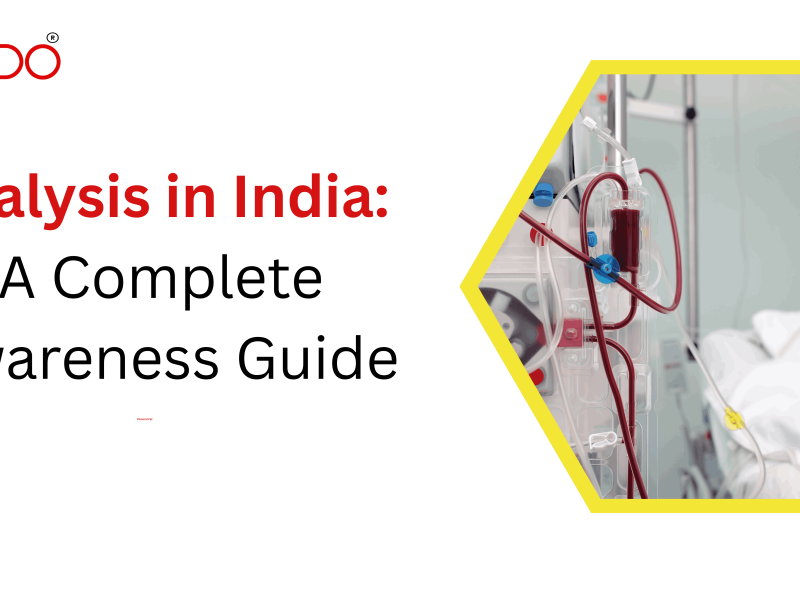Dog bites are more common than most people realize, and in a country like India, where stray dogs are widespread, the risk is even higher. A bite might seem minor at first, but it can lead to serious infections, painful wounds, or even life-threatening diseases such as rabies. Knowing exactly what to do immediately after a dog bite can make all the difference between quick recovery and dangerous complications.
This step-by-step guide will walk you through the essential actions you should take after a dog bite, why timely medical attention is important, and how you can protect yourself and your loved ones.
Why Dog Bites Are a Serious Concern in India
-
High population of stray dogs: India has over 30 million stray dogs, and not all are vaccinated against rabies.
-
Rabies threat: India accounts for one-third of all rabies deaths worldwide.
-
Delayed medical response: Many victims underestimate dog bites and delay seeking treatment, which can prove fatal.
-
Children at risk: Kids are more vulnerable due to their playful nature and lower immunity.
Given these realities, immediate care is not just important—it’s lifesaving.
Step-by-Step Guide: What To Do Immediately After a Dog Bite
1. Stay Calm and Assess the Situation
The first step is to remain calm. Panic can worsen bleeding and cloud your judgment. Move to a safe place away from the dog to avoid further injury.
2. Wash the Wound Thoroughly
This is the most critical step.
-
Use running tap water and mild soap.
-
Wash the wound gently for at least 10–15 minutes.
-
Avoid scrubbing too hard as it may damage the tissue further.
-
If soap is not available, rinse with plenty of clean water.
This step removes dirt, saliva, and virus particles from the wound and reduces the risk of infection.
3. Control the Bleeding
-
If the wound is bleeding heavily, apply gentle pressure with a clean cloth or sterile gauze.
-
If bleeding is minor, let it bleed for a short while before dressing, as this helps flush out bacteria.
4. Apply an Antiseptic
-
Use antiseptic solutions like povidone-iodine (Betadine) or hydrogen peroxide.
-
Avoid applying chili, turmeric, lime, or any traditional remedies—they don’t help and may worsen infection.
5. Cover the Wound
-
Use a sterile bandage or clean cloth.
-
Avoid tight wrapping; just cover enough to protect it from dirt.
6. Seek Medical Help Immediately
Even if the bite looks small, medical attention is non-negotiable. Visit the nearest doctor, hospital, or urgent care provider.
A healthcare provider will:
-
Assess the depth and severity of the bite.
-
Recommend tetanus and rabies vaccinations.
-
Prescribe antibiotics to prevent infections.
-
Advise hospitalization if the wound is severe.
7. Get Rabies Post-Exposure Vaccination
Rabies is almost always fatal once symptoms appear, but it is preventable with timely vaccination.
-
Category I (touch or lick on skin): No treatment required.
-
Category II (minor scratches without bleeding): Immediate rabies vaccination required.
-
Category III (single or multiple transdermal bites, licks on broken skin): Rabies immunoglobulin + vaccination needed.
The vaccination schedule is usually 0, 3, 7, 14, and 28 days (five doses).
8. Check Tetanus Vaccination Status
If you haven’t had a tetanus shot in the last 5–10 years, your doctor may recommend one.
9. Monitor for Signs of Infection
Over the next few days, watch out for:
-
Redness, swelling, or warmth
-
Pus formation
-
Fever or chills
-
Severe pain
If any of these occur, consult a doctor immediately.
10. Report the Dog (If Possible)
-
If the dog is a pet, ask for its vaccination record.
-
If the dog is stray, inform local municipal authorities.
-
Reporting helps track rabies outbreaks and prevents risk to others.
Risks Associated With Dog Bites
Even minor dog bites can lead to complications if ignored:
-
Rabies – A fatal viral disease spread through saliva.
-
Tetanus – A bacterial infection leading to painful muscle stiffness.
-
Severe Infections – Bacteria like Pasteurella, Staphylococcus, and Streptococcus can cause deep tissue infections.
-
Nerve or Muscle Damage – Especially in deep bites.
-
Psychological Trauma – Fear and anxiety after dog attacks.
Preventive Measures Against Dog Bites
While dog bites can’t always be avoided, simple precautions can reduce the risk:
-
Avoid provoking stray dogs.
-
Teach children not to tease or play aggressively with dogs.
-
Do not approach a dog while it’s eating or feeding puppies.
-
Stay calm if approached by a stray dog; don’t run.
-
Ensure your pets are vaccinated and trained.
When to Seek Emergency Help
Call emergency services or visit a hospital urgently if:
-
The bite is deep or near vital areas (face, neck, chest).
-
There is uncontrolled bleeding.
-
You notice signs of infection.
-
The dog was stray, unvaccinated, or behaving strangely.
VMEDO’s Role in Emergency Dog Bite Care
At VMEDO, we understand that emergencies don’t wait. That’s why we provide:
-
Urgent Medical Care at Home – Wound dressing, injections, and care right at your doorstep.
-
Vaccination Services at Home – Rabies and tetanus vaccines without the hassle of visiting hospitals.
-
24/7 Ambulance Services – Quick response for severe dog bite cases requiring hospitalization.
-
Emergency Assistance – Guidance and medical support anytime, anywhere in Bangalore and beyond.
By choosing VMEDO, you ensure timely intervention that can save lives and prevent complications.
Conclusion
A dog bite may look harmless at first glance, but ignoring it can lead to severe infections, tetanus, or even rabies—a disease that claims thousands of lives in India each year. The key is immediate and correct action: wash the wound, seek medical help, and get vaccinated without delay.
Remember, prevention is always better than cure—avoid risky interactions with stray dogs, educate children, and ensure pets are vaccinated.
And if you ever face such an emergency, VMEDO is here to help with urgent care at home, vaccination support, and ambulance services. Because when it comes to dog bites, acting fast is not just important—it’s lifesaving.



